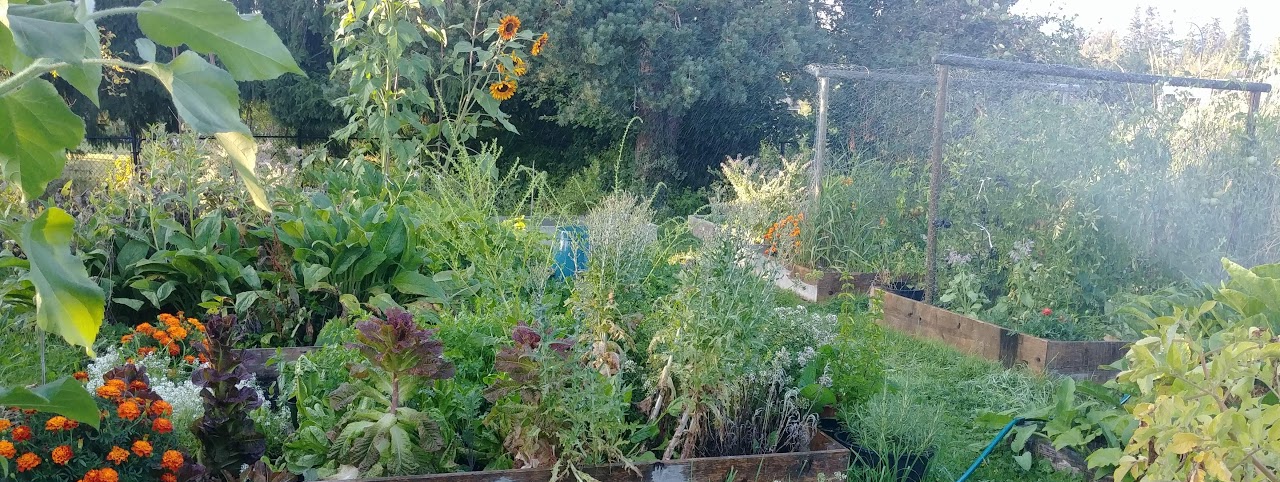
By Michelle Lam
Students in Professor Henry Yu’s Go Global course, ACAM390A: Food and the Heritage of Chinese Migrations, would typically have the chance to explore and eat their way around East Asia, with previous destinations including Hong Kong and Kaiping, China. However, with the advent of the pandemic, the course shifted into an online format, and students had to come up with creative ways to conduct their projects virtually.
In response, students Emma Quan, Jennifer Szutu, Shirley Ting, and Huabin Zhou teamed up to create Garden Stories, a project to learn about the stories of Chinese Canadian’s relationships to plants, food, and gardening. With the theme of community engagement a main focus of the course, the team spoke to community members living in Vancouver and Calgary and learned about their stories on backyard gardening. Through their project, they explored how these narratives contribute to resilience, healing, and solidarity among Chinese Canadian communities.
We had a chance to speak to the Garden Stories group about their project and key learning experiences. Read about their experiences in the Q+A below.
How did your team come up with the idea of exploring Chinese home gardens in Vancouver?
We all met during the summer virtual Go Global program for ACAM 390A: Food and the Heritage of Chinese Migrations. As the class name suggests, one of the main themes of the course was cultural connections to food, and one aspect we were all interested in exploring was the ways that people obtain food. We each have familial connections to China, and we were all inspired by our own love of food and gardening, particularly the ways that gardening is part of our families’ lives as members of the Chinese diaspora. As we were experimenting with topic ideas, we always ended up sharing stories about ourselves and our family histories. Mainly, these stories centred around food we liked or disliked, or things our families liked to grow or cook with. We realized how meaningful sharing amongst ourselves was for getting to know each other—especially in a virtual class—and for learning about our cultural backgrounds. Overall, it brought us closer together as a team, and we felt like this sharing process could be an impactful way to bring community stories to a wider audience, especially when the histories of these local Chinese Canadian food networks have been overlooked or undervalued. We wanted to show how special these stories are.
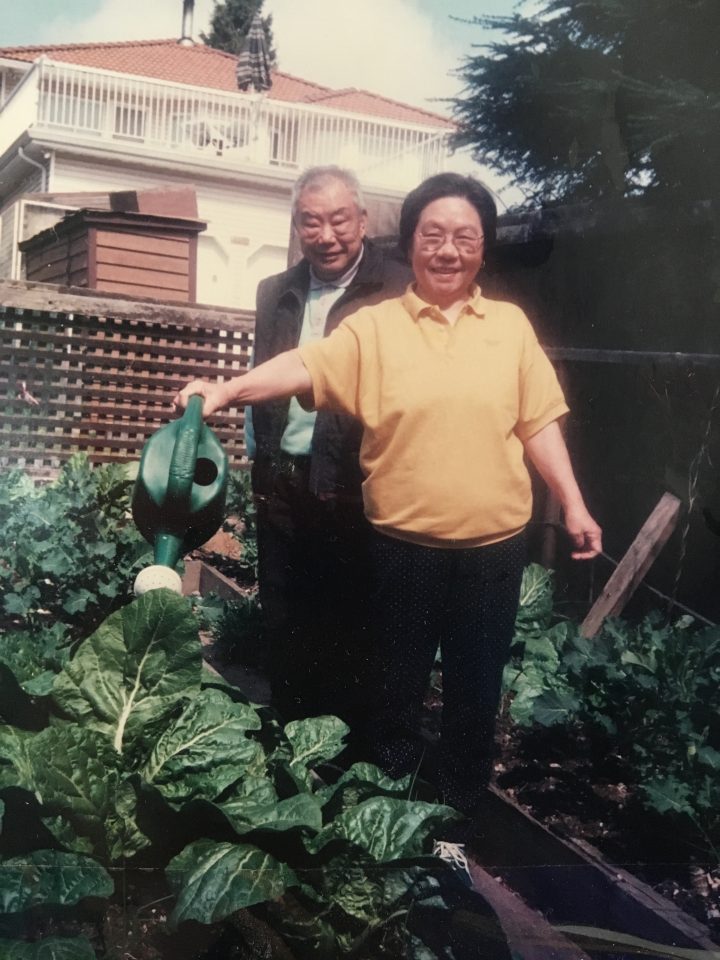
Are there any common themes that you have noticed through talking to different community members about their connections to their gardens?
A theme that we wanted to emphasize was that “everyone has a story” and that their story is important. We noticed a common theme of building connections through gardening, particularly the story-sharer’s personal connections to their garden such as growing what they like, growing something for someone else, or growing something that reminds them of a person or place. These personal connections extend out into fostering community connections through the sharing of knowledge, seeds, and crops, which highlight broader themes of reciprocity. Another common theme is that of wellness, or how wellness and other aspects of healing can manifest in different ways. In this sense, gardening has many connections to personal and community wellbeing by providing healthy ingredients, a meaningful activity, or an opportunity to interact with family or neighbours to strengthen community bonds. This leads into another theme we noticed, which is gardening’s connections to nostalgia, culture, and placemaking. We believe that gardening can represent a form of personal and cultural resiliency by developing connections with the land and by keeping traditions or techniques alive. This was especially important for Chinese migrants who came to Canada, as gardening was a way of providing financial income as well as healthy ingredients to support themselves and their families.
A theme that we wanted to emphasize was that “everyone has a story” and that their story is important.
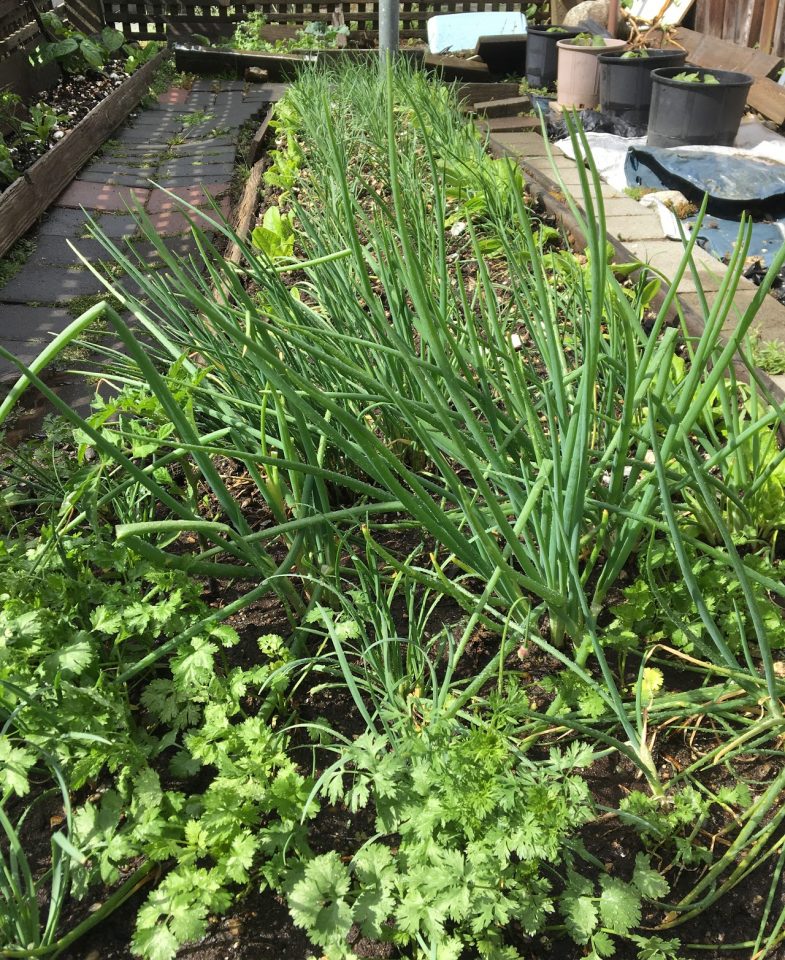
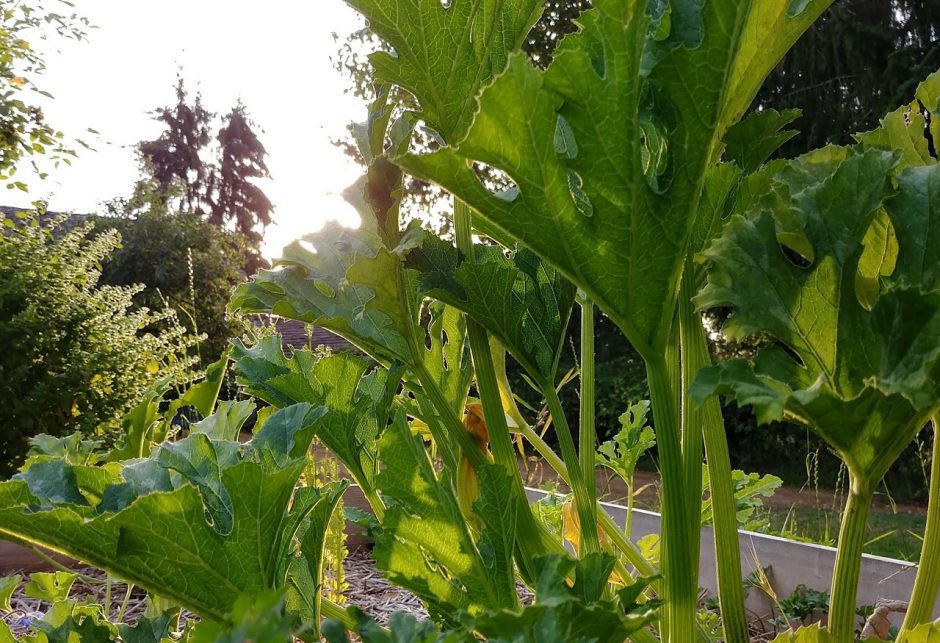
How have your interviews and research informed the idea that gardening and food can facilitate healing?
Our work has shown us that processes of healing can take many forms, and gardening can encompass and support several aspects of building personal and community wellness. For example, the activity of garden-work and eating fresh crops can nourish your body to support physical wellness. Or, gardening can be an opportunity to do something relaxing and enjoyable, which supports mental wellness. There is also an aspect of community wellness expressed through gardening because it can connect families and neighbours by sharing intangible and tangible resources; for example, techniques, recipes, seeds, and crops. This also supports the building of cultural wellness by using food and crops as a medium for connecting people to their pasts by learning about growing and using culturally significant plants. This cultural wellness can also take the form of placemaking, in which people can interact and connect to the land. For many migrants of the Chinese diaspora, gardening was a way of supporting their families and establishing a home in Canada by being able to have financial independence and culturally familiar foods.
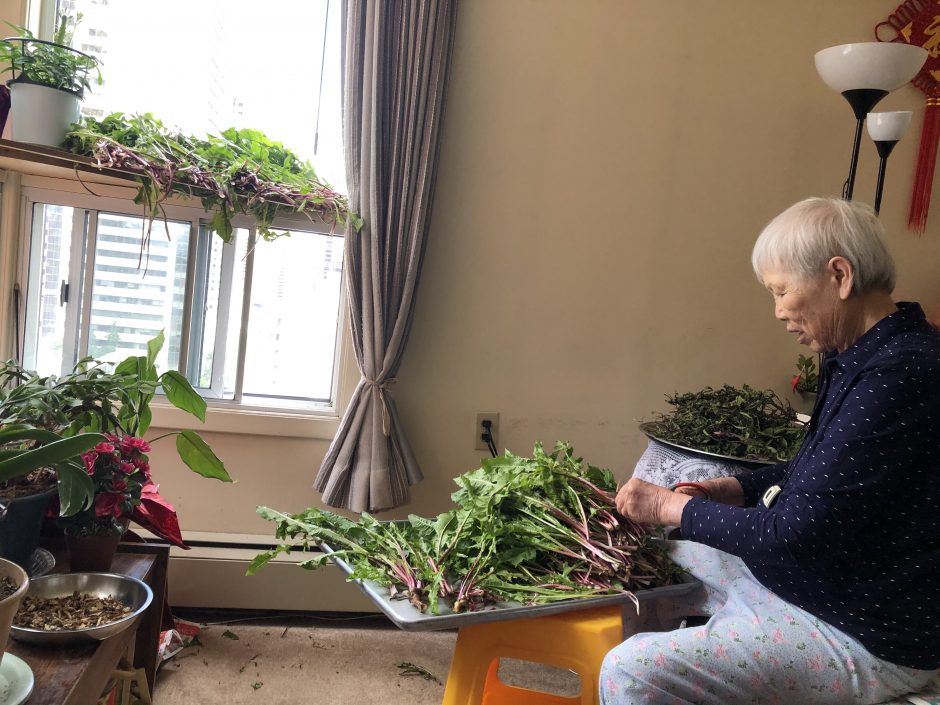
I know that your team has made great efforts to feature the voices of community members through these stories. Why is sharing community perspectives important to you?
Sharing community stories and perspectives is important to us because it helps amplify voices and cultural histories that are often missing from mainstream narratives. For many Chinese Canadians, gardening is a major part of the oral history of Chinese communities and establishing their lives in Canada. We wanted to show the public the positive impacts of personal story-sharing, and we felt it was particularly important to gather and highlight stories of community members, such as elders, who might not have the resources to share their stories. They may also undervalue their own knowledge, so we wanted to create a platform that highlights their value so they can see just how important their stories are as well. Learning from other people through informal story-sharing can also be more accessible and less intimidating. Consequently, by gathering and sharing personal stories of Chinese gardeners, we hope that people can explore how gardening can benefit them by facilitating wellness, cultural identity, and the building of community networks and solidarity.
The theme of reciprocity is apparent throughout your project. How do you think community members can benefit from sharing their stories?
Community members can benefit from sharing their stories because it helps build a sense of belonging. It’s easy to feel detached from our communities, especially in the context of the pandemic where we aren’t seeing many people in person. Sharing stories of reciprocity helps remind ourselves that our experiences, feelings, and questions are part of a collective whole. In this way, people can learn from one another and build relationships to the land, themselves, their heritage, and other cultures and community members. Our hope is that through our platform, people can learn and reflect about the importance of story-sharing and it’s positive impacts on personal and community wellness, place-making, identity, and culture. We believe that story-sharing can help foster compassion and community solidarity.
Sharing stories of reciprocity helps remind ourselves that our experiences, feelings, and questions are part of a collective whole.
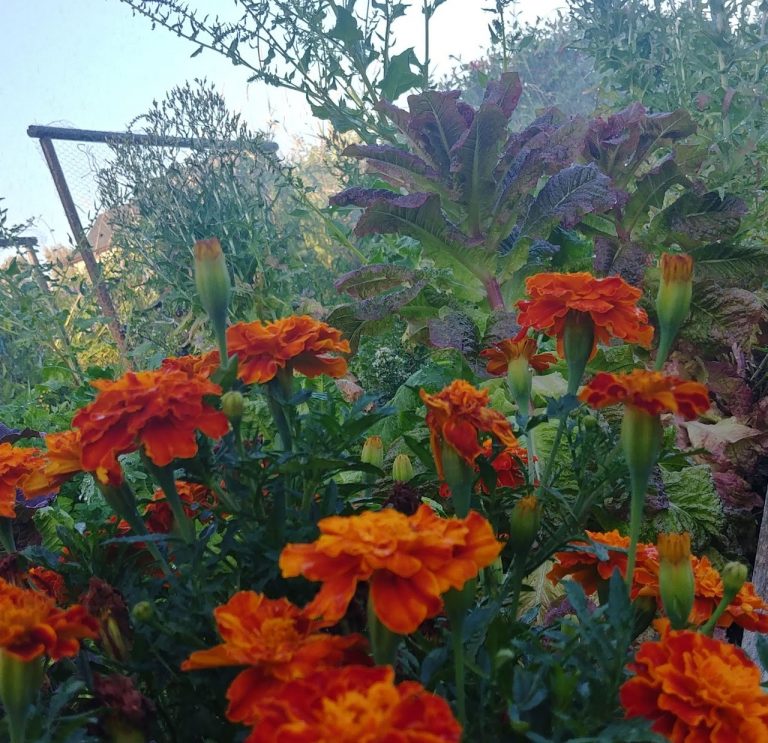
What was the biggest challenge you were facing when carrying out your project and how did you overcome this?
As a result of the pandemic, there were a lot of challenges we faced. Working and communicating entirely online limited who we could potentially interview; therefore, we were limited by our own personal connections. This meant that our initial collection of stories was small because, in order to make sure that everyone stayed safe and distant, we weren’t able to go out and interview lots of different people. The time constraint for the project also meant that our collection of stories was limited, and we recognize that they can not speak for the experiences of all Chinese communities. An additional challenge was that some people don’t see gardening as an important skill or aspect of culture, so they may feel awkward talking about it and be reluctant to share. To overcome this, we used an informal style of interview that is more like a casual conversation to ensure that each person felt comfortable. As a team, we were also often in different time zones! So, we had to overcome these obstacles by being as flexible as possible to accommodate for different schedules, safety precautions, and to make sure that everyone felt like they were in a safe space to share their stories in a way that empowers their voice and shows that what they have to say is important.
What was most rewarding about your experience?
One of the most rewarding experiences of this project has been connecting with our own families and communities to learn more about ourselves and our heritage. This project served as a gateway for starting conversations and asking questions about topics or ideas we otherwise may not have broached. Many people also don’t get the chance to share their story or they don’t feel like what they have to say matters; it was so rewarding to be able to show that these often overlooked stories of gardening have so much personal, cultural, and community significance. That’s why we wanted to make sure that the story-sharer’s voice was the central focus of the story in order to empower their personal narrative and perspective. As a whole, it has been incredibly meaningful to highlight how gardening is a valuable part of Chinese Canadian stories, and see how our audience related to the stories and were able to reflect on their own experiences in a new light.
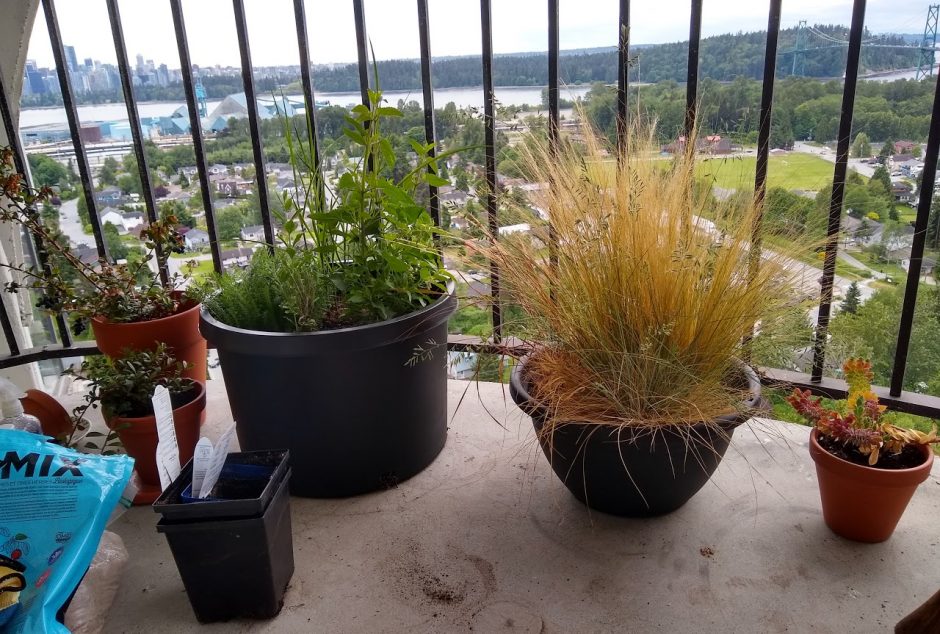
Is there anything else you would like to share with the audience?
We’re still learning! This was our first time doing a project like this, and we look forward to seeing how we can keep growing and improving. There is a space on our website to share thoughts, reflections, and maybe even your own garden story! We would love to hear from everyone and keep building upon the collection of stories. We also are very excited to announce that we have another project in the works that is connected to Garden Stories. It will be part of UBC INSTRCC’s @ChineseCanadianStories instagram account, so keep an eye out for that! We can’t wait to expand upon what we’ve created and share the new things we’ve been working on!
Read the ‘Garden Stories’ on their interactive website. Do you have a ‘Garden Story’? Share your story here.
All images are personal photos used with permission from the interviewees.
Read more Engagement Stories.